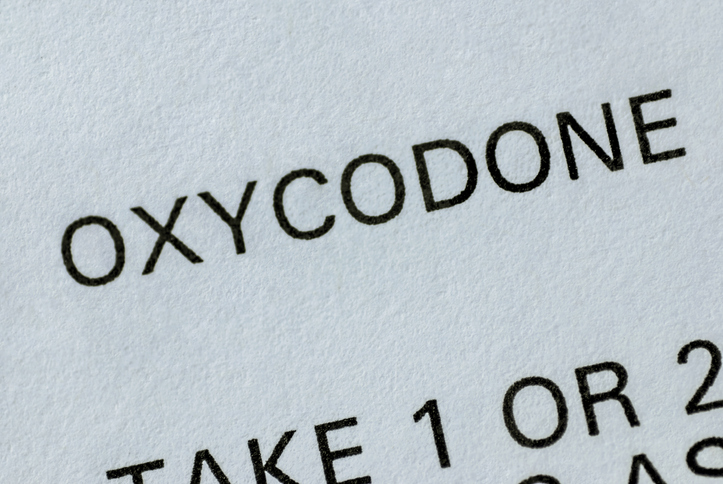A U.S. bankruptcy judge has approved an agreement by Purdue Pharma, the maker of OxyContin, and its principal owners, the Sackler family, to pay $6 billion to settle lawsuits by eight states and the District of Columbia.
Attorneys general from California, Connecticut, Delaware, D.C., Maryland, Oregon, Rhode Island, Vermont, and Washington did not agree to an earlier deal reached with other states because the Sackler family, the primary owners of the company, were not held sufficiently accountable.
The judge overruled objections to the settlement from the U.S. Department of Justice and 20 states that opposed the deal.
Under the new deal, the Sacklers agreed to pay $1.2 billion more in cash, but will not be protected from future criminal liability related to OxyContin.
Sackler Family Canceled
The Sacklers also agreed to give up control of Purdue Pharma, and a new company will be established and its profits turned over to a fund to fight the opioid crisis.
The Sacklers also agreed to a videoconference with victims’ families, and a $750 million fund to compensate about 149,000 people with individual claims.
The family will not to object to the removal of their name from museums and other institutions their philanthropy supported. The Sacklers and Purdue Pharma also issued separate statements expressing regret over the toll from the painkiller.
State and local governments will distribute the funds, in addition to the $26 billion Johnson & Johnson and three distributors have agreed to pay for related claims. The Purdue settlement money will flow after the agreement is given final approval by the bankruptcy judge.
AGs ‘Competing For Media Attention’
It is time to stop the grandstanding and distribute the money to help victims, Peter Pitts, president of the Center for Medicine in the Public Interest and a former Food and Drug Administration associate commissioner, told The Heartland Daily Podcast on March 30.
“It’s a big pot of money and what’s been holding it up is states’ attorneys general who are competing for media attention,” said Pitts.
“This money could have been done a year ago,” said Pitts. “It could have been used on people in dire need during COVID and the money sat because these AGs like their names in the news. More money is better than less, but we are talking about in excess of $32 billion.”
Opioid Epidemic Unabated
The COVID-19 pandemic has been particularly devastating in the fight against substance abuse and addiction.
The Centers for Disease Control and Prevention (CDC) reported U.S. drug overdose deaths topped 100,000 in the 12 months ending April 2021, an increase of 28.5 percent from the same period in 2020.
The holdout states failed to consider the epidemic of opioid deaths when they held out for more money and items that have nothing to do with public health, like apologies and removing names, says Pitts.
“[Beyond the original cash settlement] you are talking around the margins, but I didn’t see any of the plaintiffs’ attorneys saying they were going to waive their fees on this one so I don’t think [it’s] all about the public health,” said Pitts.
Epidemic Predates OxyContin
The opioid crisis was not caused by just one event—the introduction of Oxycontin in 1996, says Jeffrey Singer, M.D., a surgeon and senior fellow at Cato Institute.
“Data from the Substance Abuse and Mental Health Services Administration (SAMHSA) show the percentage of prescription and illicit opioid addiction among the U.S. adult population has been essentially unchanged since SAMHSA began its survey in 2002,” said Singer.
“SAMHSA and CDC data show no correlation between the number of prescriptions and non-medical opioid use or opioid addiction; and the University of Pittsburgh, using CDC data, found overdose deaths have been exponentially rising since at least 1979 (OxyContin was approved in 1996), with different drugs predominating as the cause of death at different times over the decades,” said Singer.
Doctors, Insurers ‘Off the Hook’
Purdue Pharma was targeted, but there is plenty of blame to go around, says Pitts.
“I’m shocked that physicians say we didn’t know opioids were addictive,” said Pitts. “We’ve known this for 1,000 years, so how did doctors get off the hook?
Third-party payers approved all the reimbursements for prescription pain-killers, says Pitts.
“Insurance companies loved opioids because they were cheap,” said Pitts. A lot of opioids were prescribed for conditions in which there were on-patent non-opioid drugs, but the insurers didn’t want to pay the money.”
Drugs Became Middle Class Problem
Criminalizing opioids was not the solution to addiction and overdose deaths politicians thought, says Singer.
“This has always been about drug prohibition,” said Singer. “When most of the drug deaths involved minorities and marginalized groups in earlier decades, prohibitionists blamed the drug users. When it started involving the white middle class, prohibitionists blamed Purdue Pharma and the Sackler family.
“Hanging a Sackler trophy on their wall may help advance political careers and give politicians a slush fund, but the deaths will continue to increase until we end drug prohibition,” said Singer.
AnneMarie Schieber (amschieber@heartland.org) is the managing editor of Health Care News.
Internet info:
“Stop the Grandstanding and Get Settlement Money to Opioid Treatment Centers – Guest, Peter Pitts,” The Heartland Daily Podcast, March 30, 2022:
